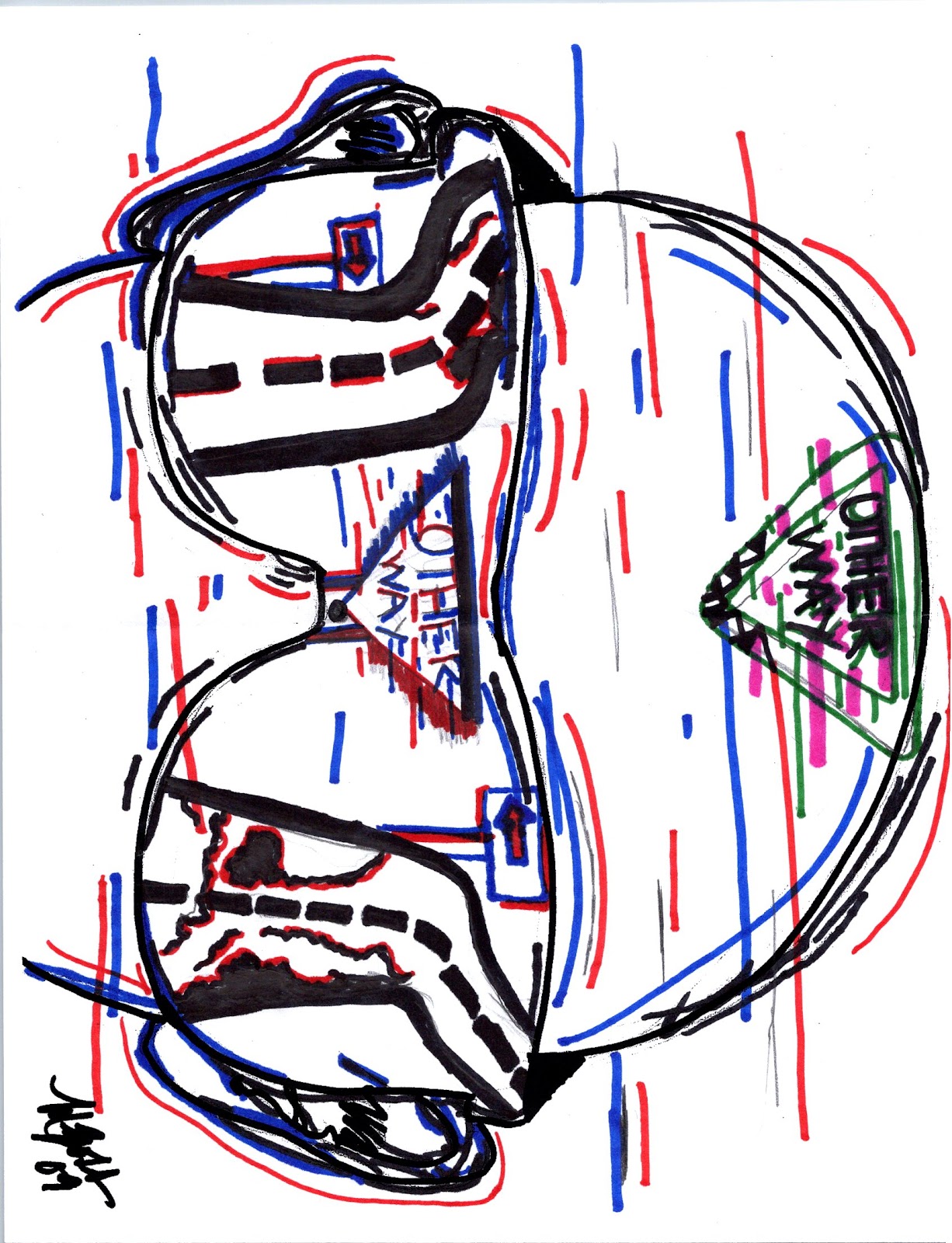Social Justice Bookclub Update #2 - Dr. Zoss Visits
A Visit from Dr. Zoss!
Dr. Zoss visited the club today from Georgia State University. She is the chair for my dissertation, a mentor, and a true inspiration. Usually, when I work with professors I feel like my brain is running circles around their ideas. When I work with Dr. Zoss, I feel like my brain is playing Pong - the old Atari game. Endlessly ideas bounce back and forth; there are mental sparks, escalating ideas, and a swirl of new thinking. It feels like magic - I get high from the conversations. This is what dissertation chairs should be made of - we should have opportunities to work with professors who deeply inspire and push us.
Dr. Zoss is an arts-based educator who believes art should be in all things. A student of Elliot Eisner who said, "Words aren't enough," Dr. Zoss brought art to our club for a specific purpose: imagining researcher identity.
In working with students marginalized by the education system, I am very aware of the need to help create a space for participant researchers to re-envision themselves as researchers. This is an added layer to their identity that can be overwhelming or, at times, seem impossibly different than the "doing school" of sifting through worksheets, neoliberal standardized testing, and fill-in-the-blank-bullshit that students are spoonfed as a surrogate for their education. Our identities matter when we research, and knowing how we see the world is equally important to consider how the world sees us. This is what Dr. Zoss brought to our club, along with a blank image of a baldheaded person wearing thick glasses. She asked:
What lenses do others use to see us? What lenses do we use to see the world?
J - It's a love and hate thing. I grew up with sexual abuse, and depression, and came to view the world as a very cruel place, but I see the good of the world. It's not as cruel as people make it out to be.
K - Drew an American flag, but put a question mark instead of stars. What it means to be American has often been twisted around. I don't feel American, one of those strong patriotic people. Don't know how much it really represents me. People of mixed heritage. I can't pinpoint what I am as American. My family comes from multiple different places. On the outside people might view me as American or African American
O - not really knowing a full identity that can be characterized. New culture every day - growing up I felt my religion as a Bahai - it wasn't only picking one identity. But then I looked my family, the whole world, my cousins, I felt like I had a lot of loyalty to everyone, but I felt alone at sometimes. That ever searching journey in my lenses. I'm learning stories and it is changing me again.
V - it's chaotic. But through the lenses it is less chaotic. Through the lenses, people can see the world chaotic, but through the other lens there are holes in the world. People can see the world as chaotic, dangerous, and bad. In the middle I have other peoples opinions on the world. Other way on the head. What people think versus what they think on both sides.
V - some flowers. I think that a lot of the world relies on innocence. Innocence clouds our judgement as people. Greenery. Clouds judgment. It doesn't allow many people to think about what they are doing. I spend a lot of time in high school going through the actions. There are different kinds of flowers that they have, I want them to bloom, but they die off, I want them to become flowers but they just die off. They become mindless actions. Greenery.
Many students shared themes of identities in flux or in process - unfinished but developing. Many students reflected on systemic racism, violence, and other obstacles and challenges they overcame to be who they are today. Many students reflected on the struggle to see their American identity because there is a mismatch or incongruence between what they thought America should stand for (or did stand for) and the America they are experiencing.
When queer people have a body that doesn't match the person inside, it is called dysphoria - I wonder if there is a term for being American but having that identity not match the current country it belongs to. To be Black, a person of color, queer, or even just a young person watching the dumpster fire float down the river, identity is complicated.
I'm hoping that when students understand research lenses, they can better understand their perspective, subjectivity, and "why." This was a unique activity and something I will consider doing sooner in the process next year as part of unpacking intersectional identity. It would pair great with the identity wheel activity. A big thank you to Dr. Zoss for taking the time to come and visit.




Comments
Post a Comment